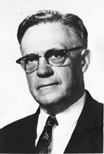Gregory Stephanopoulos
Bayer Professor of Chemical Engineering
Department of Chemical Engineering
Massachusetts Institute of Technology
Metabolic Engineering: synthetic chemistry of the 21st century
Abstract
Metabolic engineering is a maturing field, just about 20 years old. During this period, it has developed new concepts, a well-defined methodology and a focused research portfolio of rich intellectual content and particular relevance to biotechnology and biological engineering. Its goal is to harness the immense potential of microorganisms for the production of useful products, in particular from renewable resources. This it does by engineering the cellular metabolism such as to favor product-forming pathways while maintaining normal cellular functions. Having been founded on modern genetic methods and concepts of chemical reaction engineering, Metabolic Engineering is now adapting itself to rapid changes to take advantage of genome sequencing and avalanches of cell- and genome-wide-data.
In this talk I will review the foundations of metabolic engineering, its key technologies and how it has evolved in its short life span. Particular emphasis will be placed on the new and diverse types of chemistry that can be carried out with the use of microbial catalysts that are extremely challenging for synthetic chemistry. As such, metabolic engineering emerges as the enabling science for the production of chemical and pharmaceutical products in the 21st century. Examples from the production of biofuels, pharmaceuticals and materials from renewable resources will be used to illustrate the above points.
Bio
Dr. Gregory Stephanopoulos received his degrees in Chemical Engineering (B.S.: NTU Athens, M.S.: University of Florida, Ph.D.: University of Minnesota, 1978). He taught at Caltech (1978-85) after which he was appointed Professor of ChE at MIT. He served as Associate Director of the Biotechnology Process Engineering Center (1990-97) and is also the Taplin Professor of HST (2001-), Instructor of Bioengineering at Harvard Medical School (1997-), and the W. H. Dow Professor of Chemical Engineering and Biotechnology at MIT.
Professor Stephanopoulos' current research focuses on metabolic engineering, the engineering of microbes for the production of fuels and chemicals. In addition, he has pioneered methods for analyzing fluxes in metabolic networks through the systematic use of stable isotopic tracers. These methods have allowed the fine dissection of metabolism and identification of target enzymes affected by various modulations, such as oncogene expression, diet changes, and other genetic modifications. As such, his lab has generated several results of importance to cancer and metabolism. He has co-authored or –edited 5 books, more than 330 papers and 50 patents and supervised more than 110 graduate and post-doctoral students. He is presently the editor-in-chief of Metabolic Engineering and Current Opinion in Biotechnology and serves on the Editorial Boards of 7 scientific journals and the Advisory Boards of 5 ChE departments. For his research and educational contributions, Prof. Stephanopoulos has been recognized with numerous awards, such as: Dreyfus award, Excellence in Teaching Award-Caltech, AIChE Technical Achievement Award, PYI from NSF, AIChE-FPBE Division Award, M.J. Johnson Award of ACS, Merck Award in Metabolic Engineering, the R.H. Wilhelm Award in Chemical Reaction Engineering of AIChE, Amgen Award in Biochemical Engineering. In 2002 he was elected to the AIChE Board of Directors, in 2003 to the National Academy of Engineering (NAE) and in 2005 he was awarded an honorary doctorate degree (doctor technices honoris causa) by the Technical University of Denmark. In 2007 he won the C. Thom Award from SIM and the Founders Award from AIChE and in 2010 the ACS E. V. Murphree Award in Industrial and Engineering Chemistry and the George Washington Carver Award of BIO. In 2011 he was selected as the Eni Prize winner for Renewable and non-Conventional Energy and was also elected as Corresponding Member of the Academy of Athens.
Professor Stephanopoulos has taught undergraduate and graduate courses of the core of Chemical Engineering and Biotechnology at Caltech and MIT and co-authored the first textbook on Metabolic Engineering. He is presently directing a research group of approximately 25 researchers.
Please see Dr. Stephanopoulos' website here.

